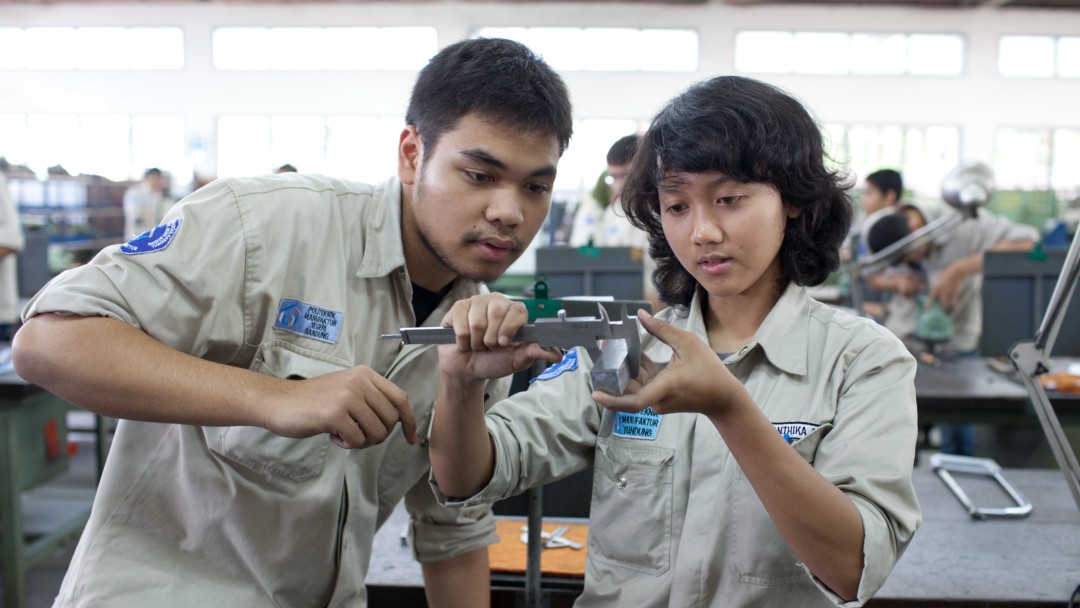News from 2022-02-09 / KfW Development Bank
Training and sustainable growth for good jobs
KfW and ADB provide almost USD 1 billion for needs-based vocational training

In Indonesia, too, the corona pandemic led to an economic slump - after twenty years with growth rates of more than 5% per year, the gross domestic product shrank by a good 2% in 2020. Even in the first half of 2021, the country has not yet been able to return to its earlier pace of expansion. In fact, however, a growth rate of about 7 to 8% is needed if the goal of achieving high-income status by 2045 is to be achieved.
To accelerate economic development at this rate, labour productivity, one of the key drivers of long-term growth, must increase from current levels. The development of human capital - meaning all the skills, knowledge and competencies of people - in conjunction with other long-term growth drivers such as technology and innovation, is a key determinant of productivity growth.
To this end, the Indonesian government has launched a "National Medium Term Development Plan" (RPJMN) for 2020-2024, which also includes guidelines for human resource development. A comprehensive 3-phase programme, designed jointly with the Asian Development Bank (ADB) and KfW Development Bank, focuses on reforms in the areas of education, skills development and health and social protection. In a third area, guidelines and strategies for better monitoring and financing of the Sustainable Development Goals (SDGs) are being developed. For the first phase, KfW has provided a loan of EUR 400 million and the ADB is contributing USD 500 million.
KfW is taking the thematic lead for the vocational education and training (TVET) sector in the "Boosting Productivity Through Human Capital Development Program". The BPHCD programme supports reforms to develop demand-oriented (short- and long-term) training formats. The involvement of the private sector is essential for this. Representatives of the German TVET system (chambers, companies, ministries, etc.) are also to be drawn into the exchange of expertise on future skills needs - including study trips to Germany to show the functioning TVET sector.
The programme uses the instrument "Policy Based Lending" (PBL). PBL conceptually combines the elements of sector dialogue, programme approach, ownership and funding efficiency. Payments under PBL are results-based: Only if the reform steps jointly agreed in a policy matrix - a two-year reform programme - have been implemented, funds are made available. Indonesia is committed to advancing its political agenda - and so the loan agreement was signed in mid-December 2021 and the funds disbursed into the Indonesian national budget.

Share page
To share the content of this page with your network, click on one of the icons below.
Note on data protection: When you share content, your personal data is transferred to the selected network.
Data protection
Alternatively, you can also copy the short link: https://www.kfw-entwicklungsbank.de/s/enzBWrMC.CpGA
Copy link Link copied